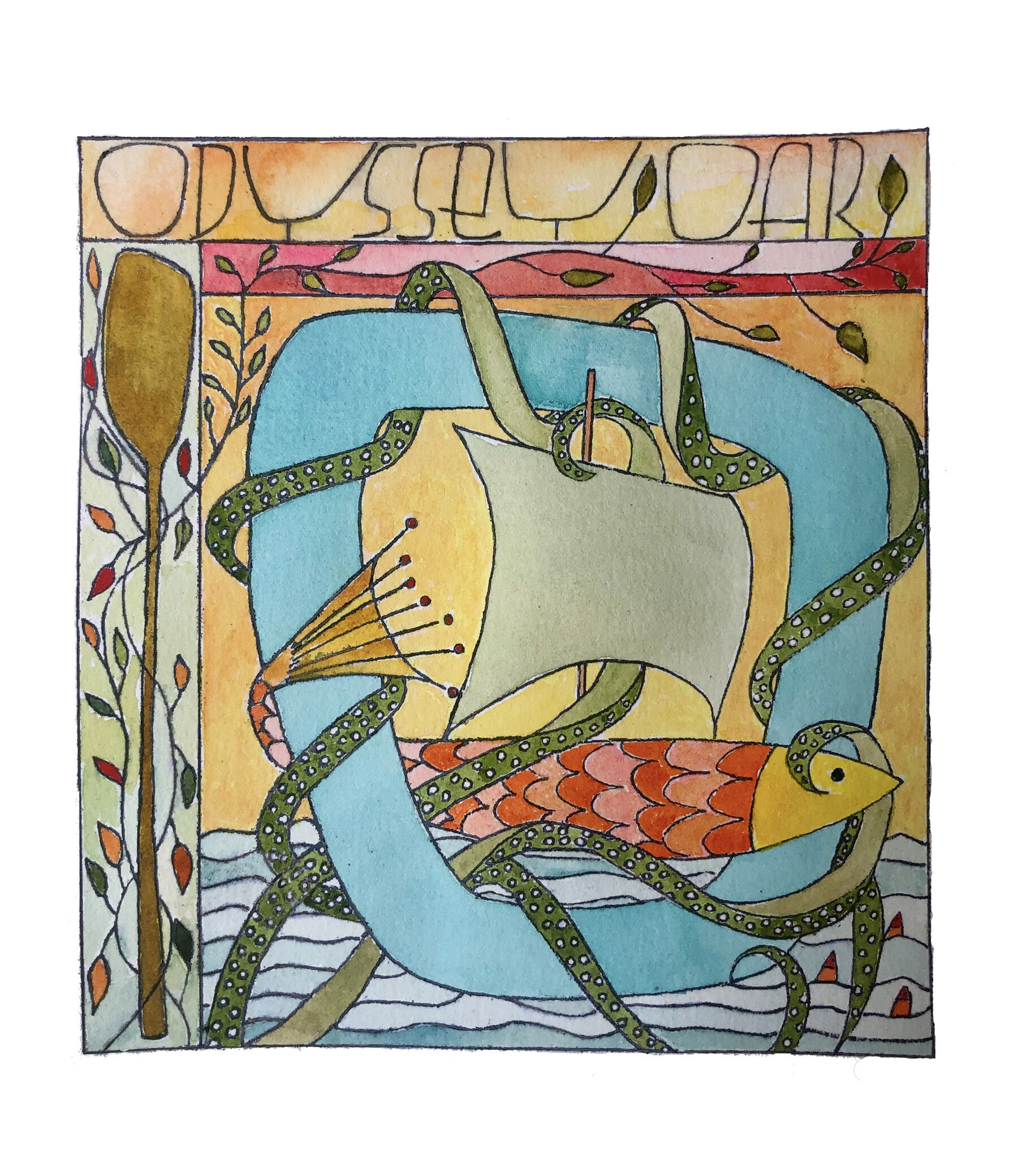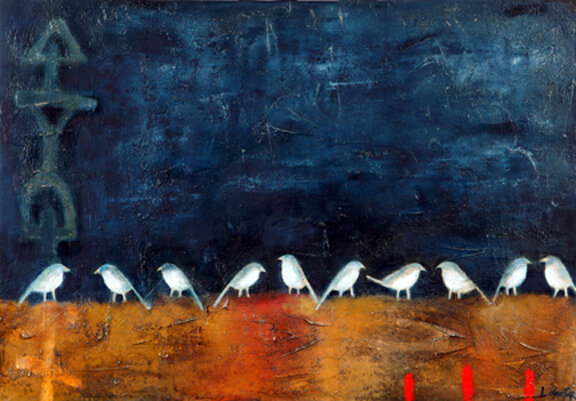
"Only in our doing can we grasp you" — Rilke
Only in our doing can we grasp you, only with our hands can we illumine you….
The first line of Rilke’s poem speaks to makers of all kinds, and how our hands can bring us back when we feel off center. Sometimes the hardest question to answer is What do I do? Or to ask yourself, listening deeply, What do I need? As they say in the old world, the veil is thinner now, Covid time reveals with urgency the gravity of the imperative to listen to your inner voice, to your calling. And to be aware, each day, of what you need. What do you need?
Odysseus’s journey was said to take 20 years to indicate it was long. For many, Covid time has shifted from something that felt more spacious, and had some security built in for the unemployed, to a feeling of long, and how can I get through?
The mind is but a visitor, it takes us out of our world…
There are so many distractions with news and this turning world, but often the biggest distraction is one’s own mind, the visitor. That visitor needs to be quiet for awhile, and let the soul emerge. Your gift has already been given. What you are waiting for has already begun. I was listening to an interview with Jordi Savall, a beloved musician, and the interviewer asked him, how did you get interested in ancient music? Jordi replied by saying that this is a misunderstanding, there is no ancient music. There are ancient manuscripts, but the music is just sleeping inside you. Take out your instrument. Begin playing and the song awakens inside you — made new.

Once Upon A Time
You can see this any day. It is both time and place at once. It is of transcendent beauty. It is the agent of all transformation. It is the origin of all things. It is so familiar that it is known by all. Yet so familiar it is forgotten and unseen. But even forgotten it is the one essential thing: the dawn.
(Susan Brind Morrow, The Dawning Moon of the Mind: Unlocking the Pyramid Texts)

Leaping Greenly Spirits of Trees
I am not sure what prompted me to sign up for the Tarot Conclave in Philadelphia. My concerned friends asked me some pointed questions. My husband, fairly indignant at my having just touched down from Santa Fe, had some more. I normally travel for the art classes I teach, and they are carefully planned and scheduled well in advance. But, like work with the Tarot, this was intuitive and completely spontaneous. I simply packed my sketchbook and went; not even I knew what to expect.

No Praise, No Blame
William Stafford's philosophy of teaching, "no praise, no blame" is something I aspire to. He felt it is not our job, as teachers, to deal out praise or blame, but rather to create an atmosphere where, in the end, the teacher is envious of the work the students have done. I want to cultivate an environment that is not oriented to what others' think, or what the teacher thinks– but that arises from the inside, brings out surprises, and elicits the best each student has to offer. "I would rather be envious of my students' work than encouraging them." (Wm. Stafford)

"You Can't Discover the Product Until You're Making It" –Stephen Colbert
There was an article this week in the NY Times on Stephen Colbert's new role as the host of "The Late Show". In spite of the fact that he has been preparing all summer, he said: You can't discover the product until you're making it. This is the one of the characteristics of art, whether it is music, painting, teaching or theatre– if you already know what you are going to do, it loses vitality, and the delight of surprise. It is the paradox of being immersed in preparedness and open to the moment. This is both terrifying and a relief– for when we can forget about ourselves and the thing we are making, we become a vessel for creation– which is always more than we could imagine.

Are You Guided by Aim or Fate?
I love returning to a book or a poem that is well written, as there is always something new that emerges, or something I have read before, but now I understand more deeply. There is a scene from Tolkein's The Lord of the Rings, when an arrow, against all odds, hits its mark. Tolkien says: It was guided by aim or fate. What an image! We have all had the experience of something coming to pass where there seemed to be a force outside the realm of cause and effect at work. How much of our work results from our aim, our will– and how much from something that we cannot quite pin down?

Dawn Comes
This is one of my favorite paintings of Paul Klee– one I got to see in person in Switzerland. The title, together with the moon, give it humor and timelessness. Our longing toward wholeness and timelessness is universal, along with those numinous moments that bring us back to awareness. Here is a story of what happened this week–

Keeping Secrets
Is the idea of keeping something secret, of privacy, of cultivating something in our inner world before it is said or shown out loud, getting lost? I am not speaking of those long, dark secrets– what I mean is sometimes we have the impulse to report immediately, to send an instant response– tweet! What I am trying to do is counter this impulse by pausing to find out where I am before I click.

Part II: What Happened After
My husband was watching the radar screen to track my plane on the way home, as it went around a gigantic storm. That night we heard the loudest, deepest, reverberating roar of thunder ever. It was so imperative that it reminded me of Laurens van der Post's book, The Voice of the Thunder, where he describes thunder as"an urgent manifesto for renewal in the human spirit".
Part I: The Calm Before the Storm
Madeline Island is one of 21 Apostle Islands in Lake Superior. This was my view arriving by ferry:
When I arrived at the Madeline Island School of the Arts, I gave myself time to be still and take in the vista from my window. In the mornings I could hear the loud, resonant wooden rattle of the Sandhill Cranes calling. I brought a couple books with me– including World Enough & Time by Christian McEwan. I was struck by this quote from Kafka:
